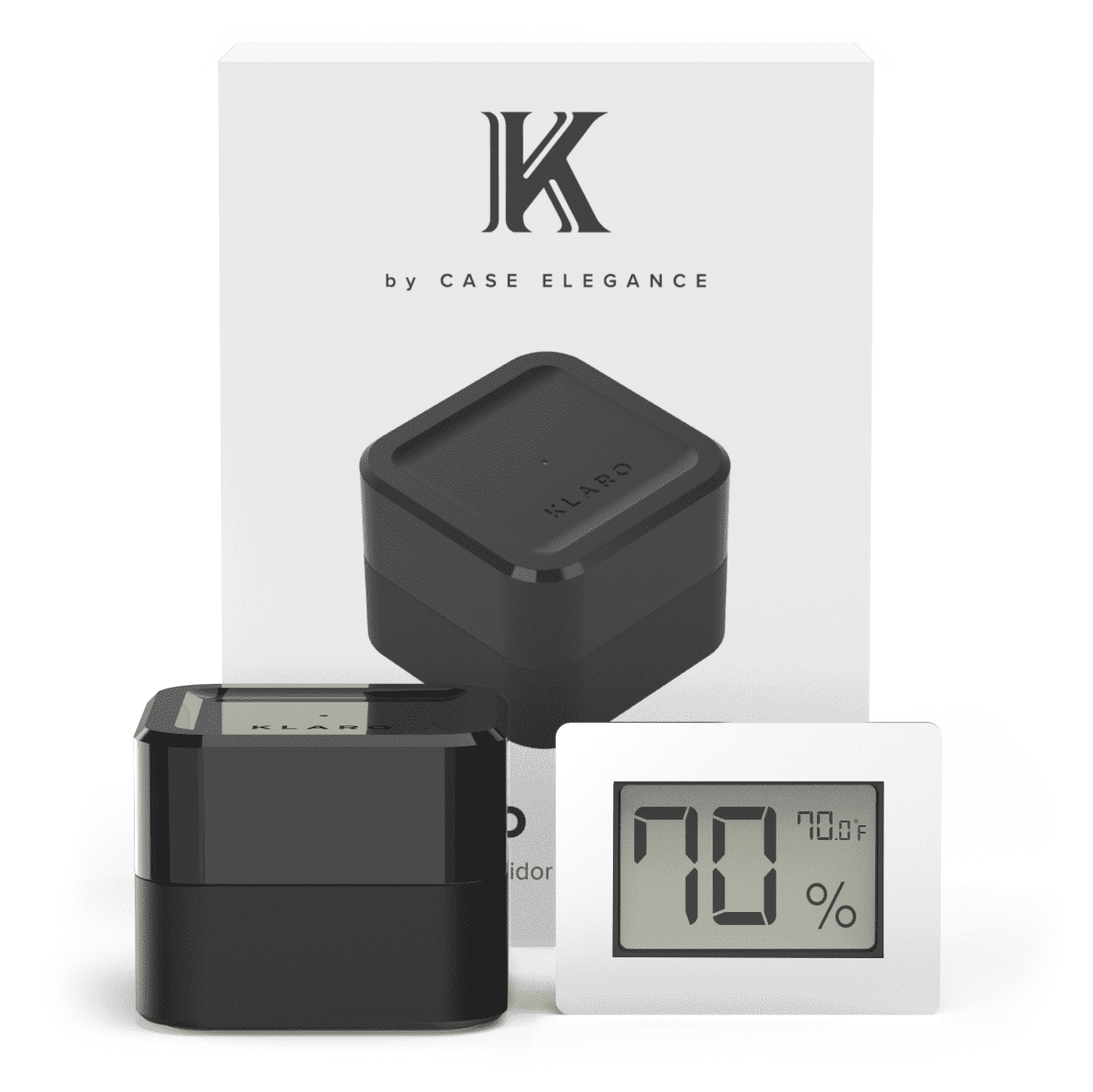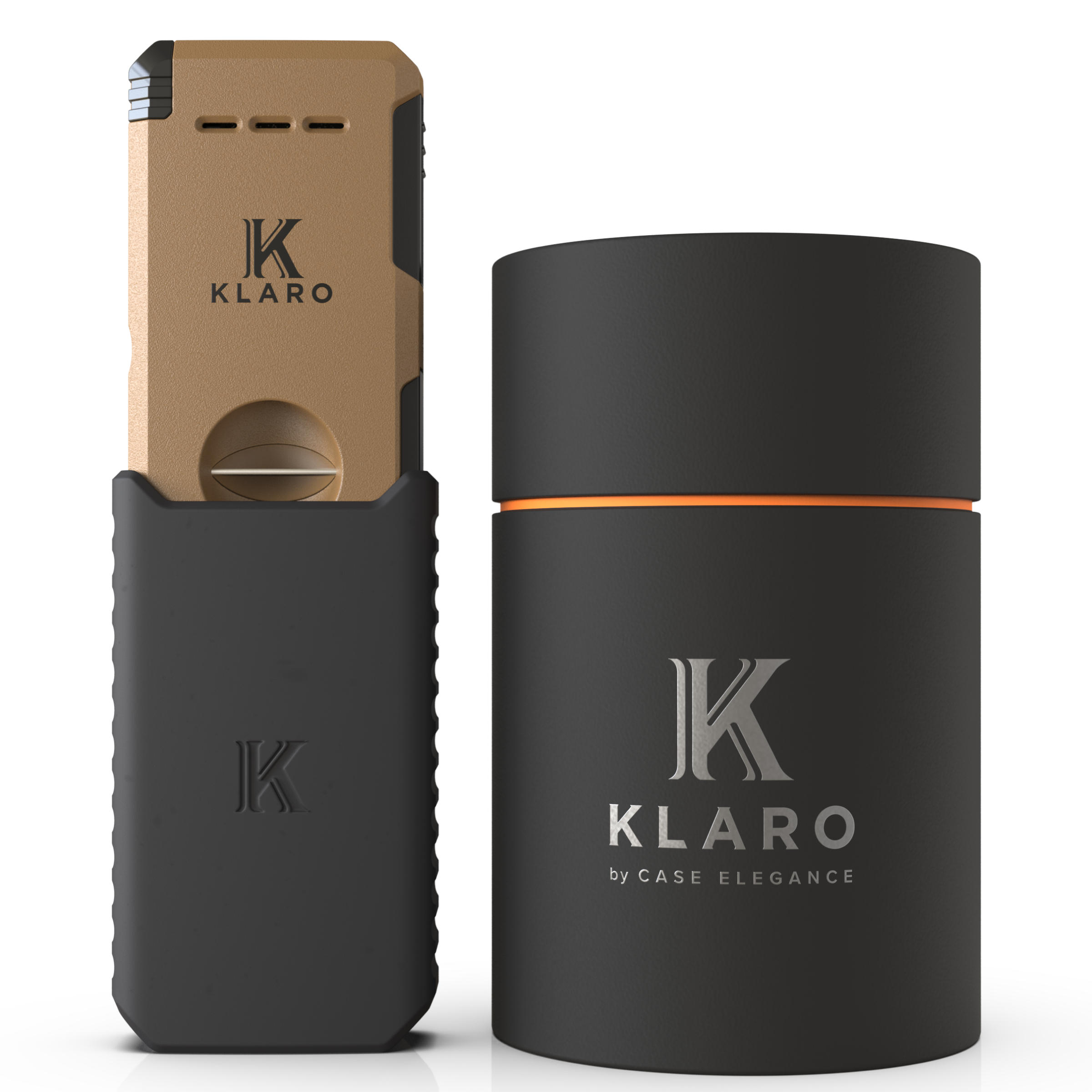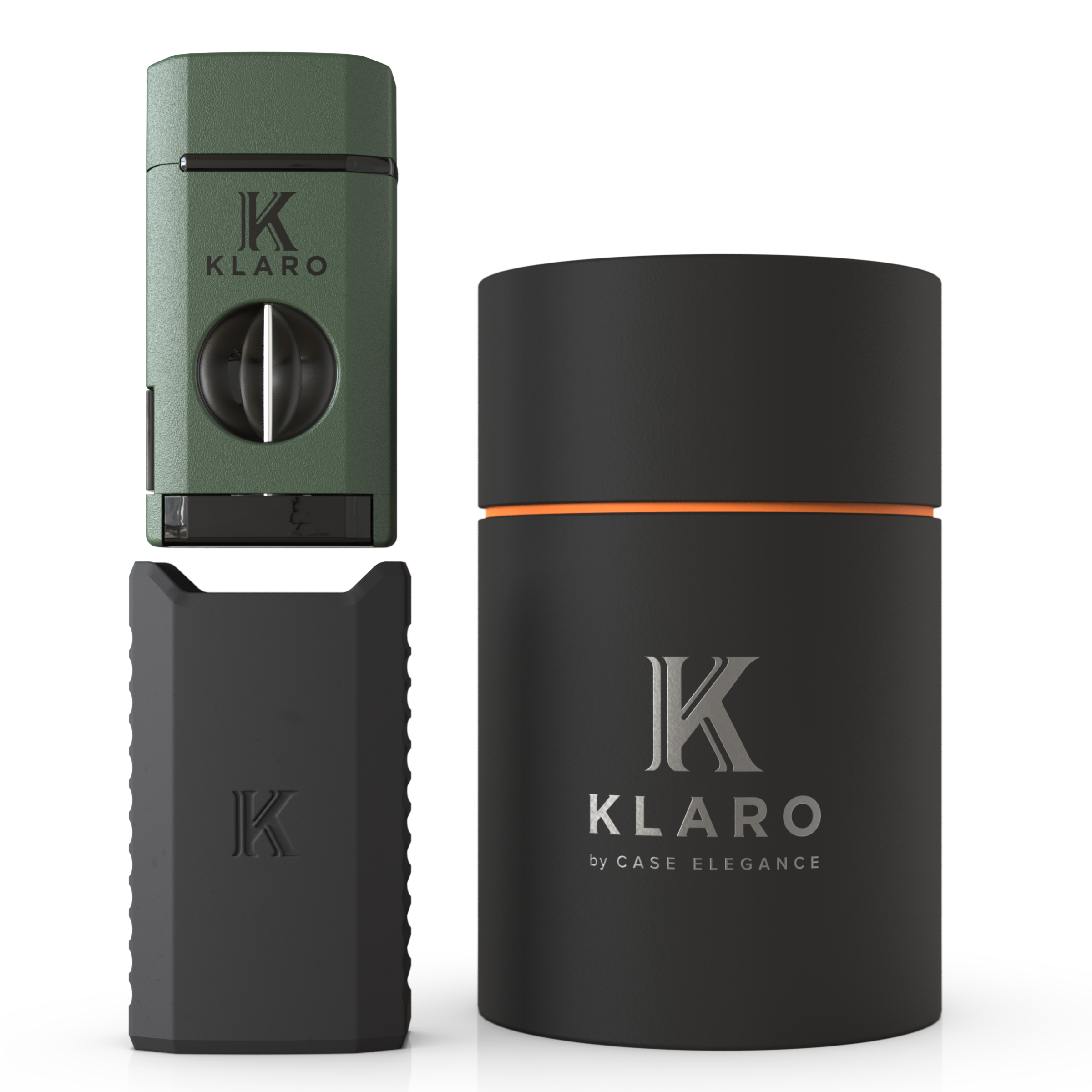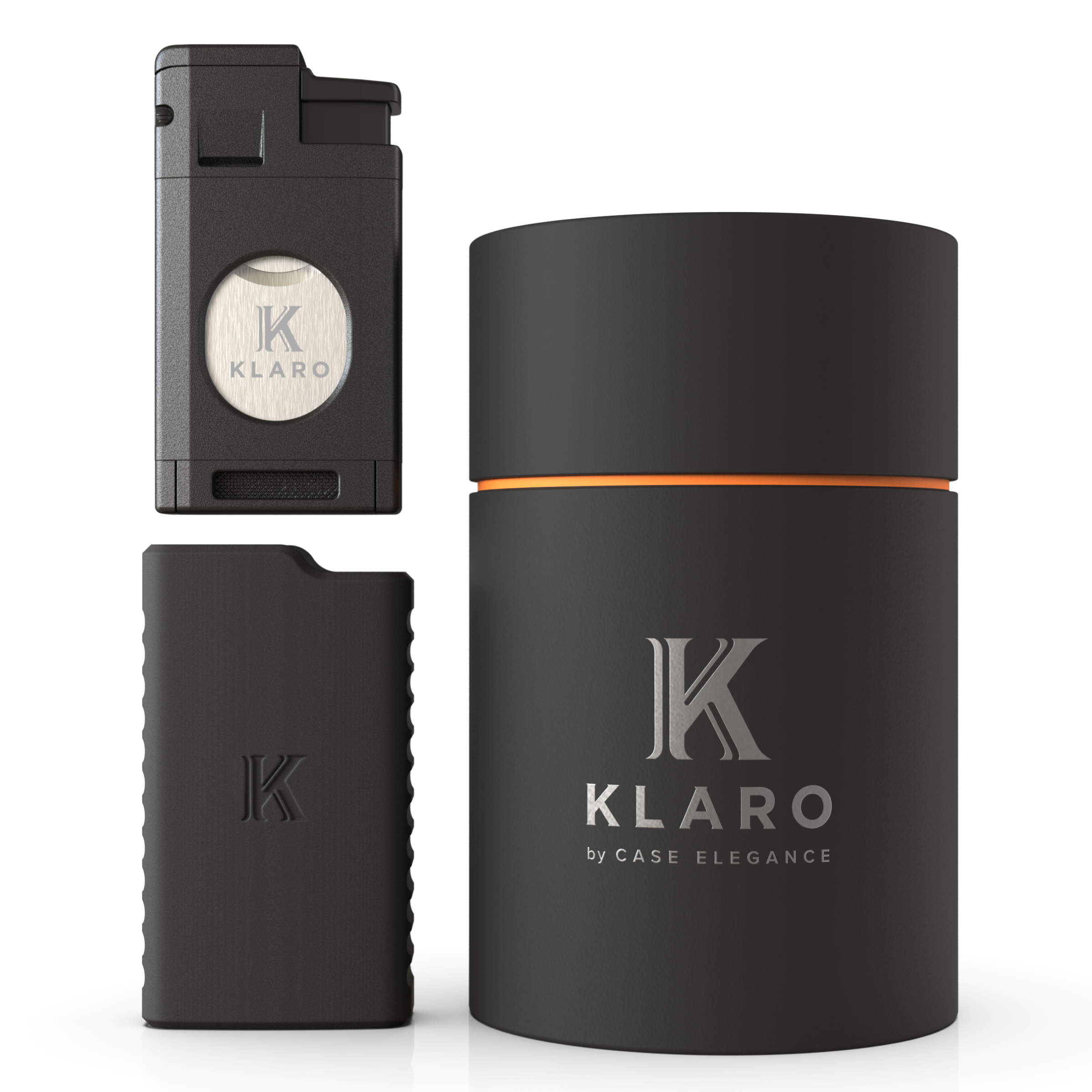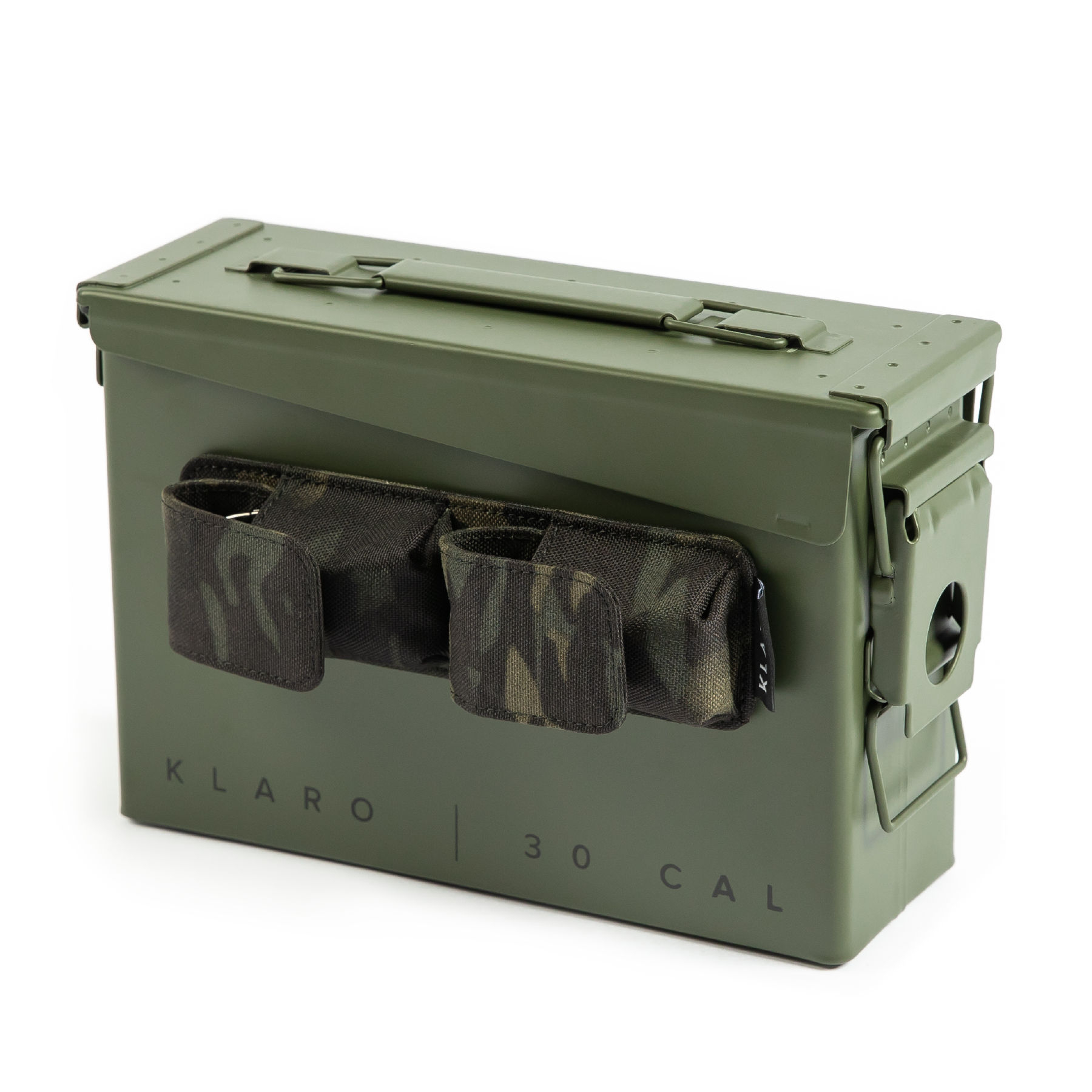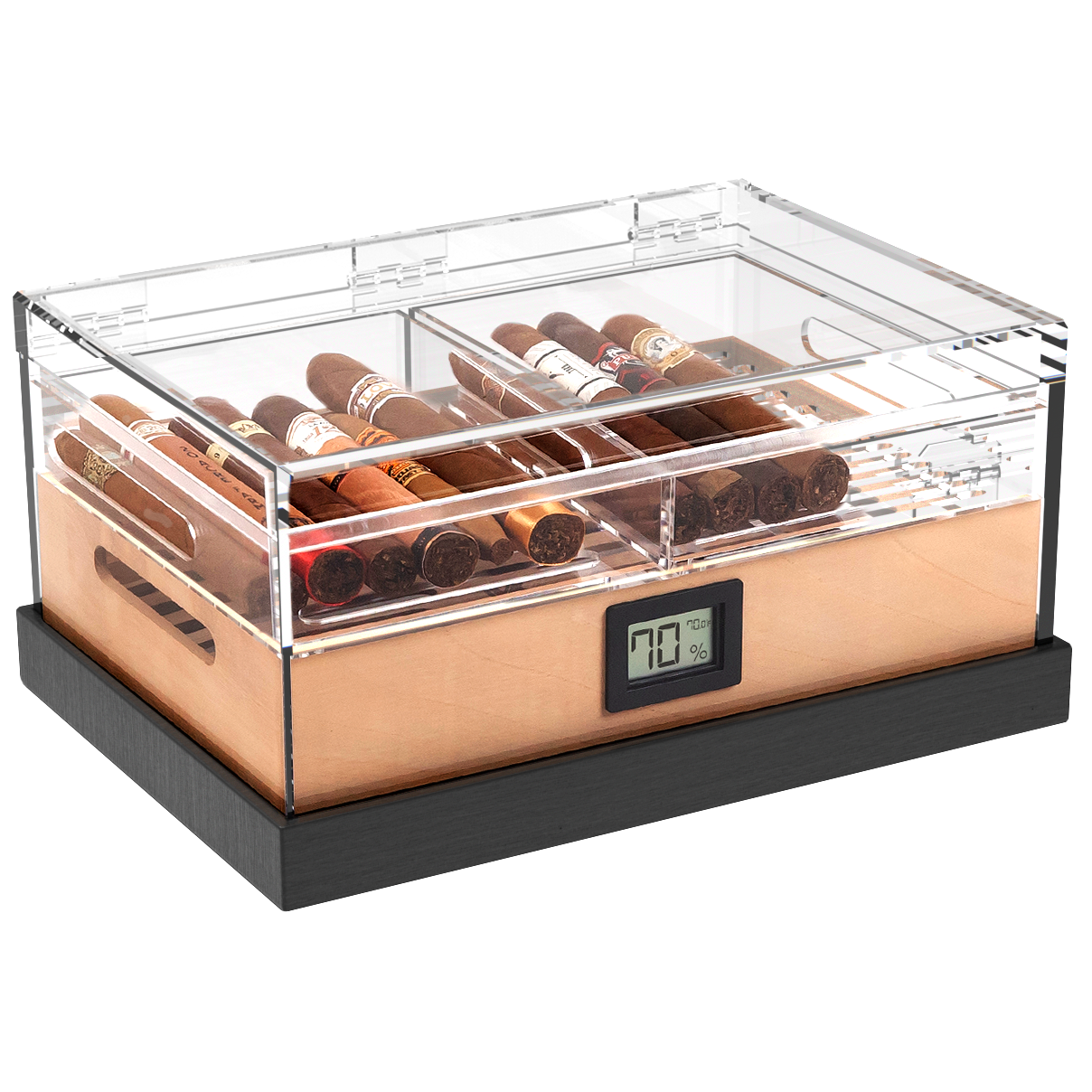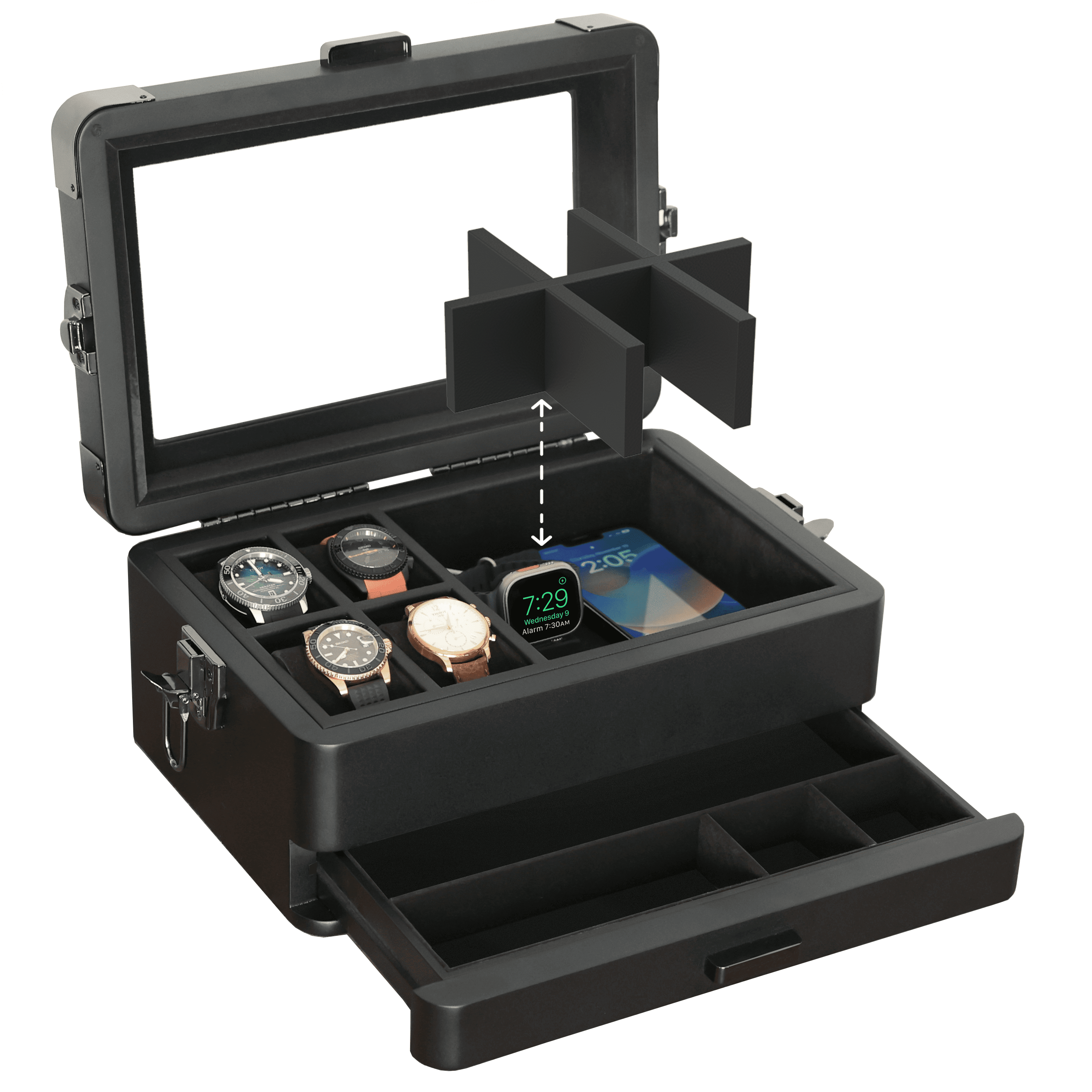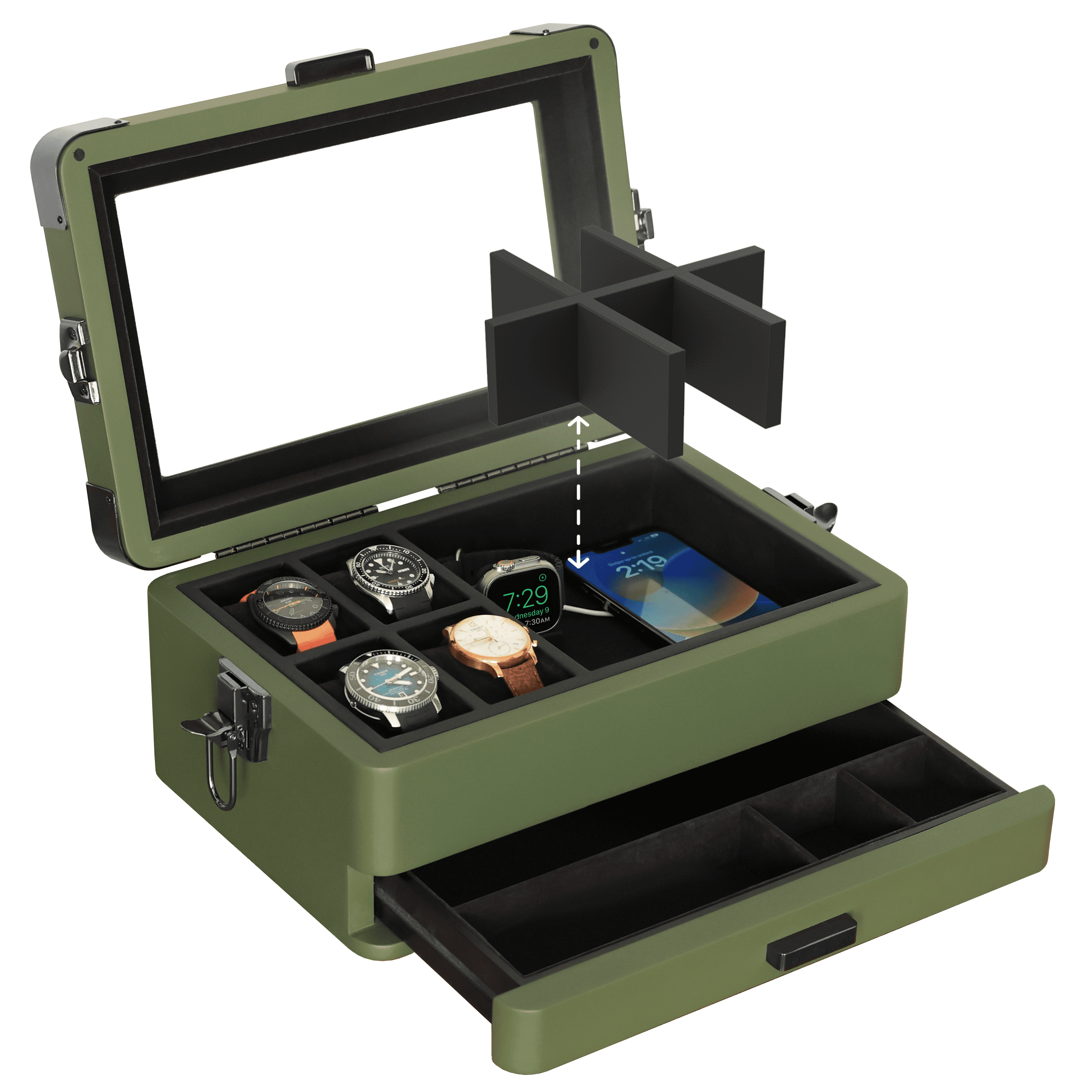When it comes to protecting and storing your cigar collection, you’ll eventually have to decide just how far to take it, especially as a cigar aficionado who typically expects the best from anything. Cigars, accessories, humidors--we can turn a blind eye to the price as long as the quality and function is exceptional.
But when do you hit the point of diminishing returns, when the added cost or complexity doesn’t exceed the capability of the tried-and-true?
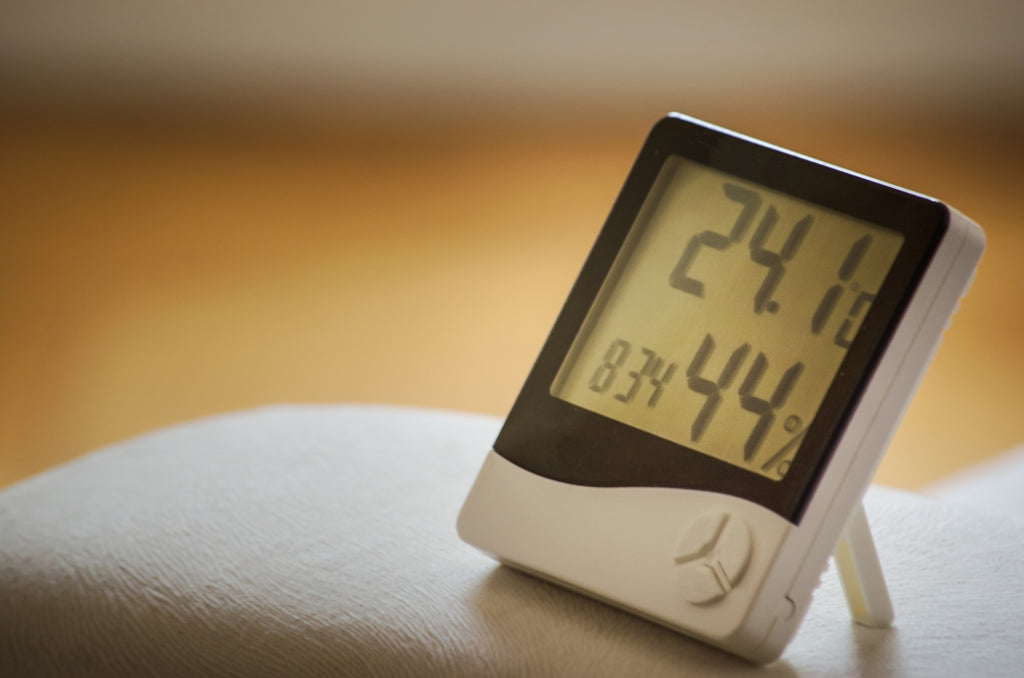
Electric humidors live in this nebulous zone, and it’s not always obvious whether these are worth their higher price point. Let’s dig into electric humidors to find out if they’re really worth the added cost.
The primary benefit of the electric humidor is twofold: you get, arguably, more control and reliability over the storage environment. And you get the ability to moderate temperature. Sure, electric humidors tend to provide more storage space, but you could get that same extended room from a larger humidor. We want to explore whether or not electric humidors extend the life of your cigar, and if there’s any effect on the quality.
Price
There’s no reason to dodge the issue: electric humidors tend to be far more expensive than other humidor options. They’re arguably more robust in terms of design, technology, and, sometimes, quality. But, ultimately, do electric humidors offer added protection or control to justify the added price?
Price points quickly range into the upper hundreds, and it's not uncommon to pay thousands of dollars for a quality electric humidor with multiple settings. While wide-ranging, it’s fair to expect to pay between $300-$4000 for an electric humidor, depending on brand, size, capability, and setting types.
What do you gain from a higher price point?
You get control, simply stated. When it comes to being able to control and moderate the temperature and humidity where your cigars are stored, you won’t find a better option than an electric humidor.
Temperature Control
Electric humidors allow you to have control not only of the humidity, but also the temperature. You’ll hear some describe these units as humidor refrigerators, though you likely won’t be storing cigars at especially low temperatures. In fact, any temperature cooler than 64 degrees Fahrenheit could affect the natural aging of your cigars.
Thermoelectric control makes electric humidors capable of altering and maintaining a certain temperature for your humidor. Because this is the main difference between electric humidors and regular humidors, many argue whether or not temperature control is necessary.
The 70/70 Rule
This is perhaps the easiest and most helpful rule when it comes to standardizing cigar storage: keep your cigars in a 70 degree climate with a 70 percent relative humidor humidity.
Why? Well, look at the history of cigars, starting with how they were made in the 18th and 19th century, being rolled in tobacco curing barns in Cuba. Of course there were temperature and humidity fluctuations across the seasons, but the general climate of Cuba was perfect for storing and drying tobacco leaves to be used for cigar making.
Your humidor should try to imitate these climate conditions, with the aim of a 70/70 temperature and humidity split.
Temperature Variability
Some would argue that, due to the relatively moderate temperature of 70 degrees, it’s not necessary to have a temperature controlled humidor. After all, there are some foolproof ways of ensuring your non-electric humidor maintains its correct temperature.
- Avoid storing in sunlight.
- Don’t store in an uncontrolled climate (basement or garage).
- Maintain a household temperature around 70 degrees.
Many cigar enthusiasts will baulk at the need to control temperature. After all, doesn’t temperature change by degrees in Cuba, where the first tobacco curing barns were uncontrolled by air conditioning? Temperature can have a dismal effect on tobacco and cigars if not moderated, and, depending on where you live, that could be easier said than done.
An argument in favor of the electric humidor would be any environment where the temperature and humidity is more likely to fluctuate. For example, any permanent outdoor locale that’s offering cigars regularly would benefit from an electric humidor. Your local outdoor Tiki bar, say.
And, remember, it’s not just the resting room temperature to watch for: the more a humidor is opened and closed, the longer it takes to readjust.
Capacity
Most electric humidors are built with the tower design--similar in size to a document storage safe or mini-fridge. This gives you enough space to store entire boxes of cigars rather than individuals, though of course you could use this space to store individuals only. But because of the power required to maintain exact temperature and humidity levels, it makes sense why these are built with a larger capacity than, say, a desktop humidor.
Electric humidors will typically have the capacity to store at least hundreds of cigars—300-500—but it’s not uncommon to see versions that can store upwards of 1500 cigars at a time.
Commercial Use
You could certainly make an argument for an electric humidor for commercial use, both with its capacity as well as temperature control given the frequency customers or employees might be opening the humidor. With its larger capacity, strict humidity and temperature control, these are great options for cigar lounges that have a rotating menu and frequent access. This also justifies the price point quite a bit more.
Similar to a walk-in humidor, an electric humidor in a private setting doesn’t make all that much sense. You might be paying a higher price for the attention and eye-candy more than the actual functionality. In most private settings, a classic, high-quality glass top humidor is going to suit the occasion and functionality perfectly.
Wineadors vs Electric Humidors
Spend any amount of time researching electric humidors and you’re bound to cross paths with the DIY-style wineador--or, a wine cooler appropriated into an electric humidor. Wine coolers serve oenophiles the same way humidors serve the cigar enthusiast: preserving wines at the perfect temperature for aging and storage. Wine coolers can keep wines at a specific temperature consistently, so it makes sense why these would be repurposed as electric humidors--and they often are.
With the right deal, it’s possible you could save money going this route, but wine coolers are similarly priced to electric humidors, and you’ll want to convert them to a proper electric humidor by providing Spanish cedar shelving. Which brings us back to our initial question: do electric humidors offer that much more than a traditional humidor?
The main element involved with maintaining the integrity of a cigar comes down to humidity. That’s why Spanish cedar is such an important element, and that’s usually why temperature is even a talking point. Both humidors and electric humidors achieve this--but electric humidors can affect temperature. But one could argue a properly stored standard humidor wouldn’t ever be exposed to extreme temperatures of any kind.
Is the peace of mind worth it for the electric humidor? Maybe in some cases. But a properly constructed, Spanish-cedar based humidor with a good hygrometer will be the best investment without sacrificing quality, every time.







